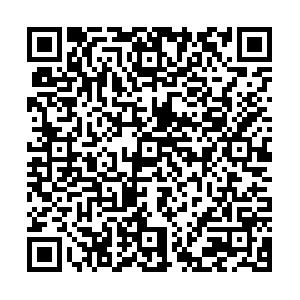Investigation on Sleep Disorders in Medical Students in An University during COVID-19 Pandemic
-
摘要:
目的 了解新冠疫情期间高校医学生睡眠障碍发生率并分析相关影响因素。 方法 采用普查法,在2020年3月,对某高校在校医学生用匹兹堡睡眠质量指数(the Pittsburgh sleep quality index,PSQI)量表及自编睡眠质量影响因素调查表进行调查。 结果 新冠疫情下某高校医学生睡眠障碍发生率为9.57%,男生较女生更易发生,P = 0.008。不同的年级、专业、学历层次、生源地的学生睡眠障碍发生率无统计学差异(P > 0.05)。作息不规律导致生物钟紊乱,家庭睡眠环境不好,感情受挫对疫情期间医学生睡眠障碍发生有显著影响,P < 0.05。 结论 新冠疫情下医学生睡眠障碍总体发生率不高,可以依据影响因素对出现睡眠障碍的学生进行有针对性的指导。 Abstract:Objective To analyze the incidence and related factors of sleep disorders in medical students in an university during COVID19 pandemic. Methods In March 2020, the Pittsburgh sleep quality index (PSQI) and self-designed questionnaire were used to investigate the influencing factors of sleep quality of medical students in a university. Results During COVID19 pandemic, the incidence of sleep disorders in medical students in a university was 9.57%, and boys were more likely to occur than girls, P = 0.008. There was no significant difference in the incidence of sleep disorders among students of different grades, majors, educational levels and places of origin (P > 0.05). Irregular work and rest led to the disorder of biological clock, bad family sleep environment and emotional frustration had a significant impact on the occurrence of sleep disorders of medical students during the epidemic period, P < 0.05. In summary, the overall incidence of sleep disorders among medical students at Covid19 was not high, and students with sleep disorders could be targeted for guidance based on influencing factors. Conclusion During COVID19 pandemic, the incidence of sleep disorders is not high, and targeted guidance can be given to students with sleep disorders according to the influencing factors. -
Key words:
- Covid-19 /
- Medical students /
- Sleep disorders
-
表 1 新冠肺炎疫情下不同年级及学历层次医学生睡眠障碍发生率比较(n)
Table 1. Comparison of sleep disorders among medical students with different levels of education during COVID19 pandemic (n)
年级 调查人数 睡眠障碍发生率(%) χ2 P 大一 333 8.41 0.429 0.511 大二 458 9.17 0.069 0.793 大三 580 9.48 0.004 0.950 大四 270 11.85 1.316 0.251 合计 1641 9.57 1.818 0.178 学历层次 本科 1264 9.49 0.007 0.936 专科 377 9.81 0.022 0.883 合计 1641 9.57 0.028 0.866 表 2 新冠肺炎疫情下不同生源地医学生睡眠障碍比较(n)
Table 2. Comparison of sleep disorders among medical students from different regions during COVID19 pandemic (n)
生源地 调查人数 睡眠障碍发生率(%) χ2 P 城市 221 10.41 0.147 0.701 乡村 1420 9.44 0.023 0.879 合计 1641 9.57 0.170 0.680 表 3 新冠疫情下不同专业医学生睡眠障碍比较(n)
Table 3. Comparison of sleep disorders among students of different majors during COVID19 pandemic (n)
专业 调查
人数睡眠障碍
发生率(%)χ2 P 护理学本科 792 8.96 0.277 0.599 临床医学本科 93 13.98 1.664 0.197 药学本科 215 10.23 0.091 0.763 医学检验技术本科 165 8.48 0.187 0.665 助产专科 123 8.13 0.245 0.621 康复治疗技术专科 108 8.33 0.159 0.690 护理专科 145 12.41 1.093 0.296 合计 1641 9.57 3.714 0.054 表 4 新冠肺炎疫情下医学生睡眠质量影响因素Logistic回归分析结果
Table 4. Logistic regression analysis results of influencing factors of sleep quality of medical students during COVID19 pandemic
影响因素 单因素分析 多因素分析 OR (95%CI) P OR (95%CI) P 担心自己被传染疾病 0.703(0.497~0.993) 0.045 1.130(0.757~1.689) 0.550 担心家人被传染疾病 0.819(0.587~1.141) 0.238 与家人关系不和谐 0.426(0.287~0.631) 0.000 0.955(0.608~1.501) 0.843 作息不规律生物钟紊乱 0.191(0.121~0.301) 0.000 0.264(0.163~0.428) 0.000 身体不适影响 0.467(0.328~0.665) 0.000 0.935(0.623~1.401) 0.743 担心学业受影响 0.443(0.302~0.650) 0.000 0.704(0.438~1.130) 0.146 不适应网课的教学形式 0.462(0.330~0.648) 0.000 0.768(0.523~1.129) 0.180 宅家缺乏运动 0.456(0.308~0.676) 0.000 1.025(0.648~1.622) 0.914 宅家缺乏人际交往 0.409(0.290~0.576) 0.000 0.642(0.399~1.032) 0.067 宅家缺乏文化娱乐活动 0.501(0.357~0.704) 0.000 1.073(0.673~1.710) 0.767 家庭睡眠环境不好 0.222(0.151~0.325) 0.000 0.424(0.273~0.658) 0.000 担心不能按时毕业 0.467(0.335~0.650) 0.000 0.759(0.484~1.191) 0.230 担心毕业后找不到工作 0.570(0.402~0.809) 0.002 1.242(0.780~1.977) 0.361 感情受挫 0.300(0.201~0.447) 0.000 0.576(0.364~0.912) 0.019 -
[1] Buysse D J,Reynolds C F,Monk T H,et al. The pittsburgh sleep quality index:A new instrument for psychiatric practice and research[J]. Psychiatry Research,1989,28(2):193-213. [2] 徐伟, 李群伟. 大学生睡眠质量及其影响因素的调查研究[D]. 泰山: 泰山医学院硕士论文, 2012. [3] 范青杰,张小玲,文佳琪,等. 莆田市在校医学生睡眠质量调查分析[J]. 中国健康教育,2017,7(33):624-627. [4] 郭丽,张莹,李晓亮,等. 医学生负性生活事件与睡眠质量关系[J]. 中国公共卫生,2015,31(7):965-967. doi: 10.11847/zgggws2015-31-07-32 [5] 张静,邓晟,宁丽,等. 新疆某医学院校大学生睡眠障碍状况及影响因素分析[J]. 新疆医科大学学报,2014,37(4):493-495. [6] Lai P P,Say Y H. Associated factors of sleep quality and behavior among students of two tertiary institutions in Northern Malaysia[J]. Med J Malaysia,2013,68(3):195-203. [7] 王燕,刘亚昆. 医学生睡眠障碍成因分析及防治措施[J]. 校园心理,2013,11(6):377-378. doi: 10.3969/j.issn.1673-1662.2013.06.007 [8] 祖甜甜,杨盼盼,蔡珍珍. 元担忧、应对方kL式对医学生睡眠障碍的影响及对策研究[J]. 课程教育研究,2016,11(下旬刊):255-256. [9] 许浩迪. 医学生睡眠质量状况的调查及其影响因素研究[D]. 沈阳: 中国医科大学硕士论文, 2019. [10] 倪杰,白瑞,昌婷婷,等. 大学生睡眠状况及影响因素分析[J]. 中国现代医药杂志,2006,8(9):54-55. doi: 10.3969/j.issn.1003-3548.2006.09.041 [11] 吴辉,余佳,阿怀红,等. 青海省各民族大学生失眠现状及其与人格特征的关系[J]. 四川精神卫生,2020,33(4):354-359. [12] 刘茜. 大学生反刍思维与睡眠质量的相关研究[J]. 现代交际,2020,15(8):176-177. -





 下载:
下载: 
